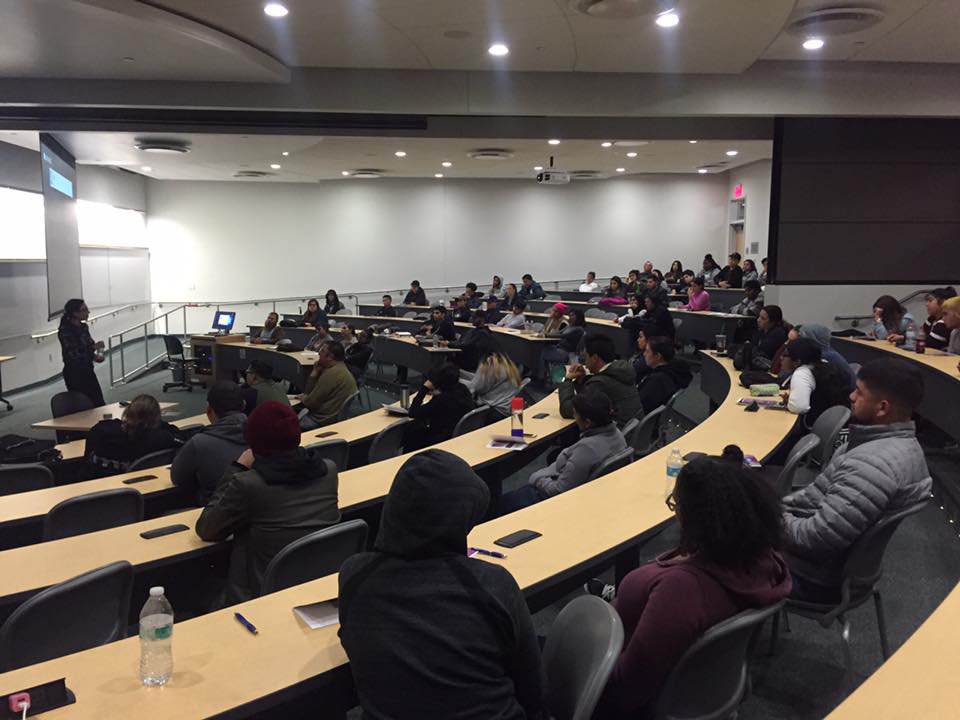
Black teachers: How to recruit them and make them stay

Lessons in higher education: What California can learn

Keeping California public university options open

Superintendents: Well-paid and walking away

The debt to degree connection

College in prison: How earning a degree can lead to a new life

In this era of misinformation and untruths, plagiarism has become a significant problem, abetted by a surge in options for students to cut corners, including growing numbers of online essay-writing services (“paper mills” or “essay mills”) and increasing online content from which to cut and paste.

Lisa Boutin-Vitela
Whether they entirely cut-and-pasted from one source with no or few alternations, used a combination of short cut-and-pasted sections from multiple sources, or copied from a source and then modified by replacing words with synonyms, students are claiming someone else’s writing and ideas as their own and not providing attribution.
Recent data about plagiarism and paper mills is concerning. There are more than 1,000 paper mills in existence. Students can easily request ghostwriters or connect with paper mills.
The percentage of students who admit to cheating ranges between 50 percent and 90 percent (the percentage varies in different studies). A recent study of 24 leading UK universities documents a dramatic 30 percent increase in academic misconduct cases between 2014-15 and 2016-17.

Julie Trager
So, what can college instructors do? In our own visual and cultural studies courses at Cerritos College, we have found that insisting on a culture of integrity in the classroom has helped to curtail incidents of plagiarism. Because we prioritize academic integrity in our classrooms, our students come to value honesty. Near semester’s end, few students dare to plagiarize. Throughout our courses, we encourage self-expression and students come to appreciate their voices being heard.
To achieve this, we have changed the design of our assignments to increase student confidence in their writing through practice and feedback. Instead of assigning one substantial research project, we divide it into smaller tasks over the course of the semester, enabling students to develop their own ideas through multiple low-stakes assignments. We build towards a final research paper through preliminary assignments, such as an annotated bibliography, outline and thesis statement, and rough draft so students receive feedback and refine their writing, research and citation skills.
We require students to submit each assignment through the plagiarism-detection software Turnitin. This software includes built-in grading features and automatic grammar, spelling and style-checking features, so students can receive feedback more quickly and we can streamline our grading processes.
With full-time California community college instructors teaching five classes each semester, the automatic checks provided by plagiarism-detection software help provide more feedback to students. Students become more informed and confident writers by reviewing their similarity score (their similarity to available online content), grammatical and spelling errors, as well as individualized feedback from the instructor.
We conduct in-class writing workshops, critiquing assignments and discussing as a class how to synthesize research into original analysis and how to give credit to research sources. These workshops are helpful in developing writing skills since the desire to plagiarize often comes out of insecurity and lack of writing skills. These workshops hold students accountable for the originality of their writing not only by us but also by their peers. This technique does not focus on penalizing but rather on instructing how to write responsibly and ethically.
Despite these efforts, a few students still submit written assignments created by copying portions of Wikipedia articles, blog posts and freely available online essays. Living in a culture that blurs fiction and truth, these students are often unaware of the illegality of their actions or do not feel shamed by cheating because of contemporary society’s lack of ethical standards. We work individually with these students.
First-time plagiarism usually results in zero points on the assignment and the opportunity to make up points through a rewrite. For repeat offenders, the plagiarism-detection software makes it easier to track and document their plagiarism. At Cerritos College, our options following an incident of plagiarism include: reprimand, a grade reduction, requiring that the work by redone, or referral to the Office of Judicial Affairs.
We emphasize the importance of original writing to help students develop confidence and personal integrity because these traits can help them no matter their academic or career goals. In a world where these traits seem to be in short supply, these lessons are more essential than ever.
•••
Lisa Boutin-Vitela is assistant professor and Julie Trager is professor in the Art and Design department at Cerritos College in Norwalk, California. Trager and Boutin-Vitela are partners in starting the “Let’s Write and Turn It On” campus-wide initiative to emphasize the importance of integrity, writing and technology at Cerritos College.
The opinions expressed in this commentary represent those of the authors. EdSource welcomes commentaries representing diverse points of view. If you would like to submit a commentary, please review our guidelines and contact us.

Legislation that would remove one of the last tests teachers are required to take to earn a credential in California passed the Senate Education Committee.

Part-time instructors, many who work for decades off the tenure track and at a lower pay rate, have been called “apprentices to nowhere.”

A bill to mandate use of the method will not advance in the Legislature this year in the face of teachers union opposition.

Nearly a third of the 930 districts statewide that reported data had a higher rate of chronic absenteeism in 2022-23 than the year before.
Comments (2)
Comments Policy
We welcome your comments. All comments are moderated for civility, relevance and other considerations. Click here for EdSource's Comments Policy.
Michelle Lewellen 6 years ago6 years ago
This is great! So proud you guys are part of the fantastic faculty at Cerritos College. Always doing what’s best for students.
Replies
Lisa Boutin-Vitela 6 years ago6 years ago
Thanks so much, Michelle! Glad you had a chance to read the commentary.